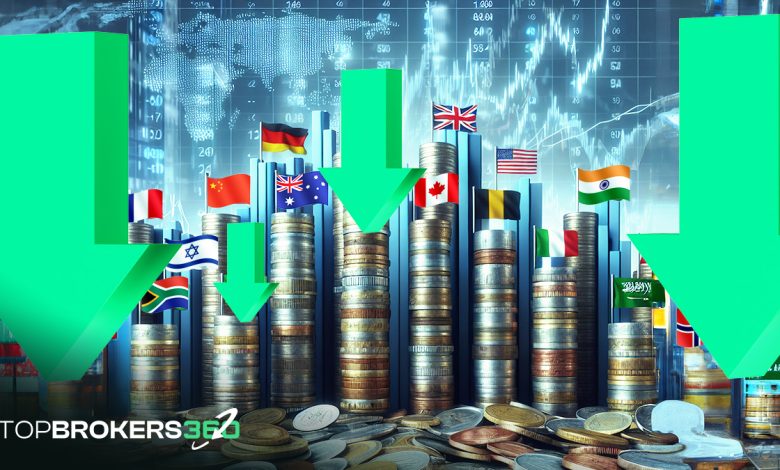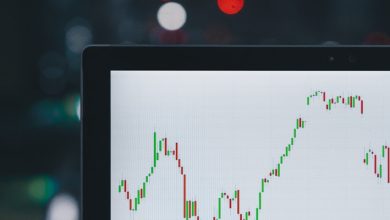How Global Events Influence Cryptocurrency Markets

- Understanding the impact of geopolitical events on cryptocurrency prices
- The role of economic indicators in shaping the cryptocurrency market
- How regulatory changes around the world affect the value of digital assets
- Exploring the connection between major news events and fluctuations in cryptocurrency prices
- The influence of technological advancements on the global cryptocurrency market
- Analyzing the correlation between market sentiment and external events in the crypto space
Understanding the impact of geopolitical events on cryptocurrency prices
Geopolitical events have a significant impact on the prices of cryptocurrencies. The uncertainty and instability caused by political tensions, trade wars, or economic sanctions can lead to fluctuations in the cryptocurrency market. Investors often turn to digital assets like Bitcoin or Ethereum as a safe haven during times of geopolitical turmoil, causing an increase in demand and subsequently driving up prices.
For example, when there is a conflict between major world powers, such as the US and China, the value of cryptocurrencies may rise as investors seek alternative investments to traditional assets like stocks or fiat currencies. On the other hand, positive geopolitical developments, such as peace agreements or trade deals, can have the opposite effect and lead to a decrease in cryptocurrency prices.
It is essential for cryptocurrency traders and investors to stay informed about global events and how they may impact the market. By understanding the relationship between geopolitics and cryptocurrency prices, individuals can make more informed decisions about buying, selling, or holding digital assets. Keeping a close eye on news headlines and geopolitical trends can help predict potential price movements and mitigate risks in the volatile cryptocurrency market.
The role of economic indicators in shaping the cryptocurrency market
Economic indicators play a crucial role in influencing the cryptocurrency market. These indicators provide valuable insights into the overall health of the economy, which in turn impacts investor sentiment and decision-making in the cryptocurrency space.
One key economic indicator that has a significant impact on the cryptocurrency market is the Gross Domestic Product (GDP). The GDP measures the total value of all goods and services produced within a country, providing a snapshot of its economic performance. A strong GDP growth typically signals a healthy economy, leading to increased investor confidence and potentially higher cryptocurrency prices.
Another important economic indicator is the Consumer Price Index (CPI), which measures the average change in prices paid by consumers for goods and services. High inflation, as indicated by a rising CPI, can erode the purchasing power of a currency, leading investors to seek alternative stores of value such as cryptocurrencies. This can drive up demand for cryptocurrencies and push their prices higher.
Unemployment rates are also closely watched by cryptocurrency investors as they reflect the overall health of the labor market. High unemployment rates can indicate economic instability, leading investors to flock to cryptocurrencies as a hedge against traditional financial assets. On the other hand, low unemployment rates may signal a strong economy, boosting investor confidence and driving up cryptocurrency prices.
In addition to these indicators, central bank policies and interest rates also play a significant role in shaping the cryptocurrency market. Central banks have the power to influence the money supply and interest rates, which can impact inflation, economic growth, and investor behavior. Changes in monetary policy can lead to fluctuations in cryptocurrency prices as investors adjust their portfolios in response to shifting economic conditions.
Overall, economic indicators are essential tools for understanding the broader economic landscape and predicting how global events may impact the cryptocurrency market. By staying informed about key economic indicators and their implications, investors can make more informed decisions and navigate the volatile cryptocurrency market with greater confidence.
How regulatory changes around the world affect the value of digital assets
Regulatory changes around the world can have a significant impact on the value of digital assets such as cryptocurrencies. Governments and regulatory bodies play a crucial role in shaping the legal framework within which these assets operate. When new regulations are introduced or existing ones are amended, it can create uncertainty and volatility in the market.
One way in which regulatory changes can affect the value of digital assets is by restricting or banning their use altogether. For example, if a government were to ban the use of a particular cryptocurrency within its borders, this would likely lead to a sharp decline in its value as demand for the asset would plummet. On the other hand, if a regulatory body were to introduce regulations that legitimize the use of a certain digital asset, it could lead to increased adoption and a corresponding rise in value.
Another way in which regulatory changes can impact the value of digital assets is by influencing investor sentiment. Uncertainty around the legal status of a particular cryptocurrency can make investors nervous and lead to sell-offs, driving down the price of the asset. Conversely, clear and favorable regulations can boost investor confidence and attract more capital into the market, driving up prices.
It is important for investors in digital assets to stay informed about regulatory developments around the world and to understand how these changes could affect the value of their investments. By keeping a close eye on regulatory news and being prepared to adapt to changing circumstances, investors can better navigate the volatile world of cryptocurrency markets.
Exploring the connection between major news events and fluctuations in cryptocurrency prices
Cryptocurrency prices are known to be highly volatile, often experiencing significant fluctuations in response to major news events around the world. These events can range from geopolitical tensions to economic indicators, and they can have a profound impact on the value of digital currencies.
One of the key factors that can influence cryptocurrency prices is the level of uncertainty in the global economy. When there is instability in traditional financial markets, investors may turn to cryptocurrencies as a safe haven asset. This increased demand can drive up prices, leading to a surge in value for popular cryptocurrencies like Bitcoin and Ethereum.
Another major news event that can impact cryptocurrency prices is regulatory developments. Government announcements regarding the legality or regulation of digital currencies can cause prices to fluctuate dramatically. For example, when China announced a crackdown on cryptocurrency trading in 2017, the price of Bitcoin plummeted by over 30% in just a few days.
In addition to these external factors, internal developments within the cryptocurrency community can also influence prices. News of security breaches, technological advancements, or partnerships with major companies can all have an impact on the value of a particular cryptocurrency. Investors closely monitor these developments to gauge the future potential of a digital asset.
Overall, the connection between major news events and fluctuations in cryptocurrency prices is undeniable. By staying informed about global events and understanding how they can impact the market, investors can make more informed decisions when buying or selling digital currencies. It is essential to consider both external and internal factors when analyzing the cryptocurrency market to anticipate price movements accurately.
The influence of technological advancements on the global cryptocurrency market
Technological advancements have played a significant role in shaping the global cryptocurrency market. The development of blockchain technology, which underpins cryptocurrencies, has revolutionized the way financial transactions are conducted. This innovation has increased the efficiency, security, and transparency of digital currencies, making them more attractive to investors and users alike.
One of the key ways in which technological advancements have influenced the cryptocurrency market is through the proliferation of new cryptocurrencies. As developers harness the power of blockchain technology to create new digital assets, the market becomes more diverse and dynamic. This diversity can lead to increased competition among cryptocurrencies, driving innovation and pushing the market to new heights.
Moreover, technological advancements have also facilitated the integration of cryptocurrencies into mainstream financial systems. The development of cryptocurrency exchanges, wallets, and payment gateways has made it easier for people to buy, sell, and use digital currencies in their everyday lives. This increased accessibility has helped to fuel the growth of the cryptocurrency market and attract new participants.
Analyzing the correlation between market sentiment and external events in the crypto space
When analyzing the correlation between market sentiment and external events in the crypto space, it becomes evident that global events play a significant role in influencing cryptocurrency markets. The sentiment of investors and traders can be swayed by various external factors such as geopolitical tensions, economic indicators, regulatory developments, and even social media trends.
For instance, when there is uncertainty in the global economy, investors may flock to cryptocurrencies as a safe haven asset, driving up prices. On the other hand, negative news about regulatory crackdowns or security breaches can lead to a decrease in market sentiment and a subsequent drop in prices.
It is crucial for market participants to stay informed about external events and how they might impact the cryptocurrency markets. By keeping a close eye on news sources, social media platforms, and market analysis reports, investors can make more informed decisions about when to buy or sell their digital assets.



